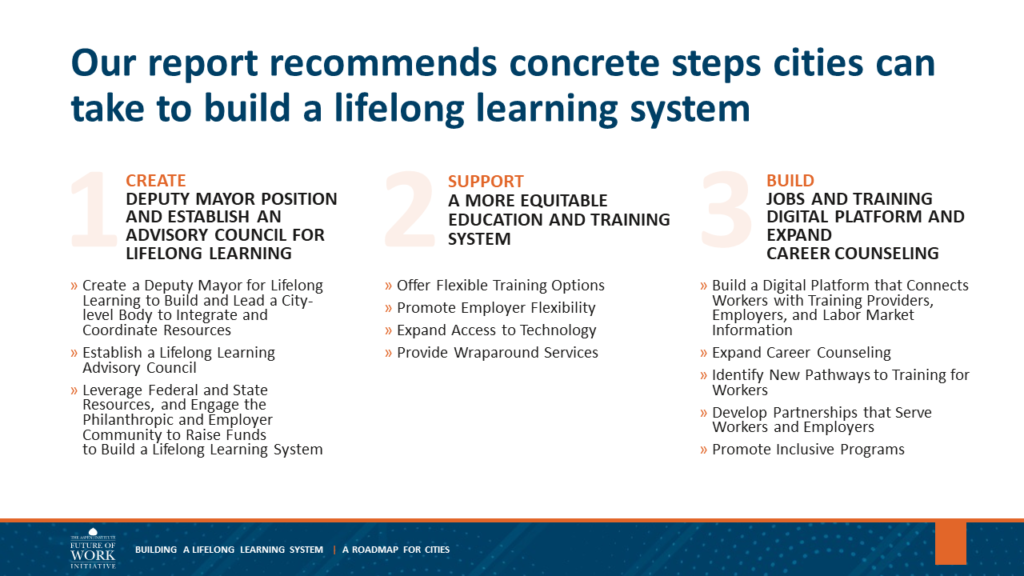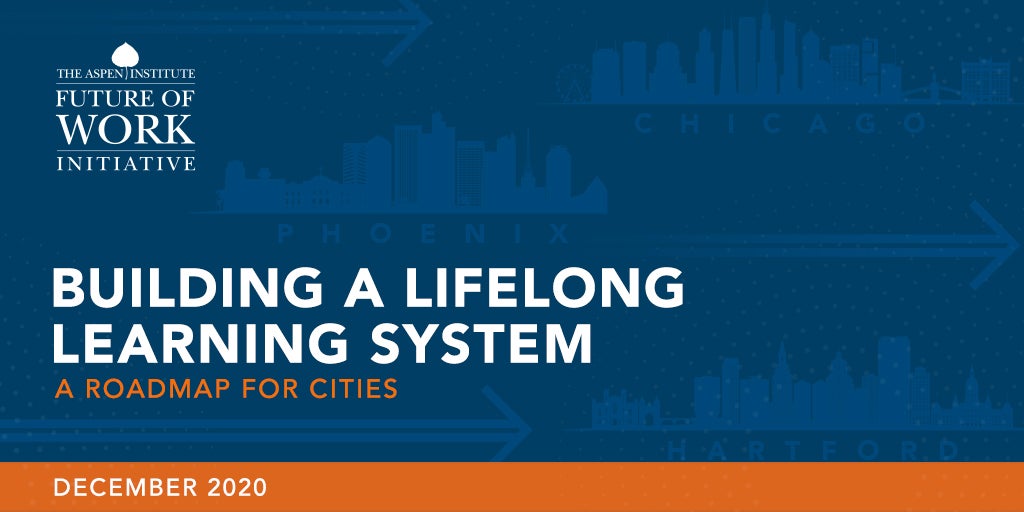Since 2019, the Aspen Institute Future of Work Initiative and the Cognizant U.S. Foundation have brought together local leaders, industry executives, academic institutions, training providers, and policymakers from Chicago, Phoenix, and Hartford, to better understand how American cities can develop lifelong learning systems to support workers. In December, the Initiative convened an event to release the Initiative’s new report, Building A Lifelong Learning System: A Roadmap for Cities.
This event expanded on the conversations we had with policymakers and experts in Phoenix, Chicago, and Hartford. Below are some of the key takeaways from the experts at that event, who illuminated the barriers and opportunities of creating a system that helps, not hinders, lifelong learning. The Future of Work Initiative is grateful to the Cognizant U.S. Foundation for providing financial support for this project and publication.
Helping workers develop new skills has become even more urgent.
Long before COVID-19, lifelong learning was a critical component of building a competitive workforce. But particularly during this unprecedented and uncertain period of change, providing workers with the tools they need to successfully navigate a changing labor market over the course of their careers is an urgent national economic imperative.
The challenge facing workers seeking education or training is not a lack of options.
There are hundreds of thousands of credentials to choose from and thousands of providers, both brick and mortar and online, vying for the education and training dollars of individuals, employers, and governments. A major challenge is how to help people sort through these options and make the best possible decision about when and how to upskill or reskill.
Cities have considerable assets to meet the needs of adult workers.
Employers are central to the education and training infrastructure within cities and include for-profit, nonprofit, and city governments themselves, which in some cases can be the largest employers in a city. The evolving skills and competencies required by employers influence the services provided by education and training providers.
Alongside employers, community colleges are a crucial component of the U.S. education and training infrastructure and are well positioned to support post-COVID retraining, as well as efforts to develop more lifelong learning opportunities.
City stakeholders must bring an equity lens in developing strategies to address both barriers to participation and completion in education and training programs.
The ongoing impact of systemic racism on education and training is visible at all levels. Leaders will need to examine how previous actions and inactions may have exacerbated inequalities, acutely in urban areas, and take action to support people of color.
Looking ahead, there are concrete steps the cities can take to build a lifelong learning system.
With adequate resources, cities have an opportunity to play a larger role in helping unemployed, underemployed, and incumbent workers better navigate this complex landscape—in doing so, cities can build an inclusive lifelong learning system that fosters a skilled, competitive, and economically mobile workforce.



